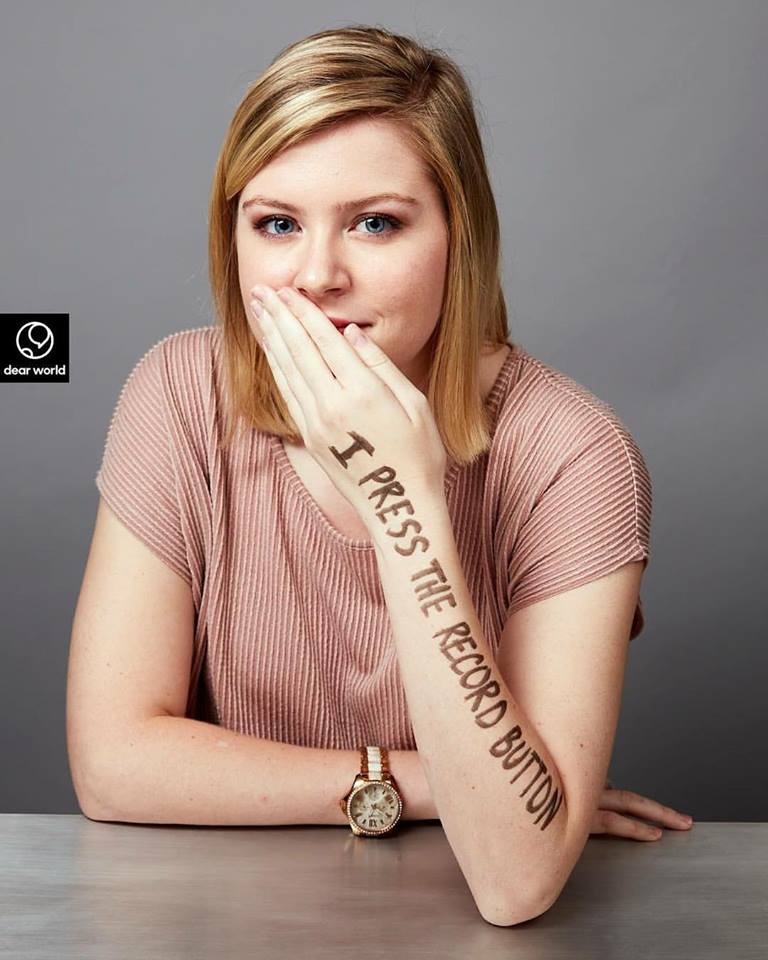Imagine losing your ability to speak, not being able to communicate your everyday feelings, thoughts or requests. Maybe you’ve experienced this the day after a big concert or as a result of a common illness, but for Amyotrophic Lateral Sclerosis (ALS) patients, this is an everyday reality. Kaitlyn Tholen (Gamma Tau Chapter ‘19) dedicates her time to ALS patients by pressing the record button and preserving their voice when they fear they will lose it.
ALS is a progressive neurodegenerative disease. It affects the nerve cells in the brain and spinal cord, causing patients to lose muscle control. “As the disease progresses, patients lose the ability to move, speak and even breathe,” Tholen explains. “The unique feature of ALS is that it affects your motor neurons, so patients lose the ability to communicate with their body even though they are fully cognizant.” As a Neuroscience Major at Tulane University, Tholen had been volunteering at the Ochsner Medical Center in New Orleans, Louisiana for several years. When she heard that the Neuroscience Department was starting this program, she couldn’t pass up the opportunity to help!
Tholen does something called voice banking, a program for patients in the early stages of ALS. “By starting the program, we wanted to give these patients a chance to keep a piece of themselves when all seems lost,” says Tholen, who works with patients from all over the Louisiana area and surrounding states. “Though it varies among patients, ALS patients typically lose their ability to speak rather quickly after diagnosis. If they decide to go through with our program, patients will come in for about six sessions to record with us,” she explains. The system that Ochsner uses, ModelTalker, creates 1600 unique phrases for the patient to record. Rather than recording the actual words that the patient says, the system records the syllables in each word and can put them together to form any word. This allows the patient to have a wide vocabulary instead of just the words recorded. Tholen explains “In addition, we can also create custom inventories so the patients can record phrases with the names of their family or other important words they use each day.”

A typical appointment would last about two hours as a patient sits in an audiology booth with a volunteer like Tholen. She explains “As each sentence pops up on the screen, a computerized voice will read it, then I will hit record when the patient is ready to repeat it back. We can usually get through about 300-400 phrases during one appointment.” After the recording is done, it is sent to a software company where they deconstruct the voice, make a synthetic voice and send it back to the patient so that they can download it. The cost of voice banking is about $100, however, Ochsner does multiple fundraising efforts so patients do not have to pay for the service or for transportation.
Tholen has been working with this project for over a year and a half and plans to continue her service to the ALS community. She says she is “humbled to be able to give back something so special to these patients when they felt helpless.” Recently, Tholen had the opportunity to participate in DearWorld, a storytelling experience, when it visited Tulane University. Participants are asked to write a unique phrase on their bodies and a portrait is taken. Tholen chose to tell her story about voice banking and explains that “I chose to cover my mouth to bring awareness to the fact that these patients are not able to speak up about their experiences. I am fortunate enough to speak about my work at Ochsner and I hope that this picture will inspire other people to speak up as well for ALS.”
There are many ways to support ALS patients and their families. You may remember the popular ALS Ice Bucket Challenge that swept social media not too long ago. Tholen says that “the best way to support ALS patients is to do more research about what the disease entails and find organizations that support ALS patients and their families. [...] In addition, I think it is super important to spread the word locally and be a voice for these patients. They don’t have the capability to speak up, so we have to be the voice that starts the change!”
 Interested in learning more about what Tholen does? Check out this video from the program at Ochsner. Tholen shares that “I had the opportunity to work with Ms. Norman during her last appointment, and her story was recorded to give everyone a little more insight into what we do each weekend for these patients!”
Interested in learning more about what Tholen does? Check out this video from the program at Ochsner. Tholen shares that “I had the opportunity to work with Ms. Norman during her last appointment, and her story was recorded to give everyone a little more insight into what we do each weekend for these patients!”
